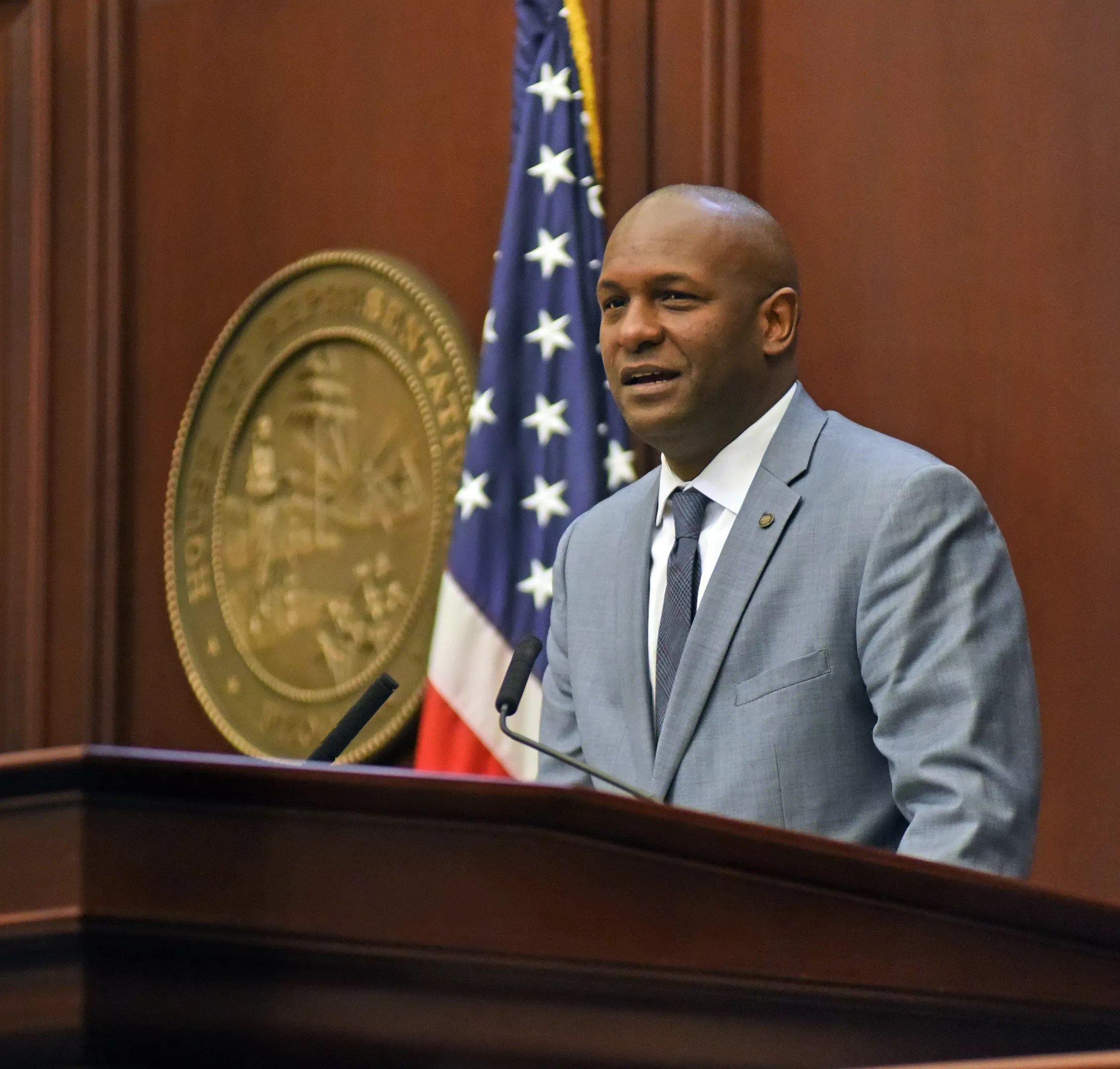
Photo via Florida House of Representatives

Audio By Carbonatix
Clifford Williams Jr. and his nephew Hubert Myers spent more than four decades in prison for a murder they didn’t commit.
The men were at a party in Jacksonville in the early hours of May 2, 1976, when two women in a nearby apartment were shot while they slept. One of the women died; her partner survived and told police Williams and Myers shot them from the foot of their bed.
Myers and his uncle were arrested, tried, and convicted on charges of murder and attempted murder based on testimony from a single witness and despite a lack of physical evidence tying the men to the crime.
Myers, who at the time was 18 years old and had no violent criminal history, was sentenced to life in prison with the possibility of parole after 25 years. Williams, then 30, was sentenced to death, although the Florida Supreme Court eventually changed his sentence to life in prison.
While behind bars, Myers read a Florida Times-Union article about the State Attorney’s Office of the Fourth Judicial District creating a unit that would review wrongful convictions. He wrote to the office arguing his defense and pointing out another man had confessed to the murder.
His appeal for justice worked: In March, Myers and Williams had their sentences vacated after a case evaluation by the Conviction Integrity Review. The uncle and nephew, now gray-haired, were set free.
Myers qualifies for compensation from the State of Florida under the Victims of Wrongful Incarceration Compensation Act, which grants $50,000 to exonerees for each year of wrongful incarceration, with a cap of $2 million. But Williams, under current state law, is not eligible for compensation because of prior felony convictions.
A newly filed Florida bill won’t change that fact for Williams, but it could help others like him. State Rep. Bobby DuBose, a Fort Lauderdale Democrat, this week filed a House bill that would remove the “clean hands” provision of the Victims of Wrongful Incarceration Compensation Act, which bars compensation for people with prior felony convictions. The bill won’t be retroactive, DuBose tells New Times, but he hopes it will right some wrongs moving forward.
“At the end of the day, the fact that the state wronged someone with a prior conviction doesn’t remove our culpability from what we’ve done,” he says.
When the act was signed into law in 2008 with then-Sen. Arthenia Joyner leading the charge, wrongfully imprisoned people with any previous felony convictions were exempt from compensation. In 2017, the Florida Legislature unanimously passed a bill that amended the act to exclude those priorly convicted of only violent felonies or multiple nonviolent felonies.
Of the 35 states that compensate wrongfully incarcerated people, Florida is the only one with these caveats. DuBose’s bill seeks to eliminate them all. He believes Williams’ case perfectly shows the need for a change.
“When you think about removing someone from their family for 40 years, you’re not just impacting them – you’re impacting generations to come,” DuBose says. “This recent case is a good example of why something like this is a bad policy, and we need to pass this bill to correct that.”
About 2,500 people have been exonerated in the United States since 1989, according to the Innocence Project of Florida. State-specific exoneration figures are unclear. The Death Penalty Information Center maintains a database of exonerations that includes pardons, acquittals, and dropped charges. The database counts 29 exonerations in Florida since 1973. The National Registry of Exonerations, meanwhile, counts 72 exonerations in Florida since 1989.